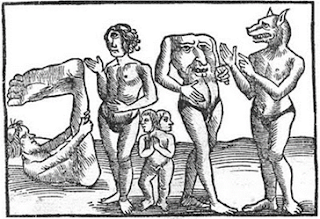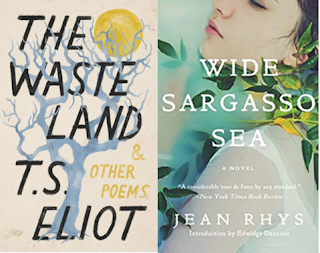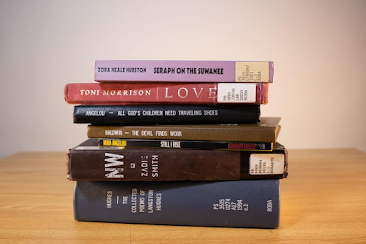Fall 2024 Courses Unveiled!
Fall 2024 Courses
ENG 8000 What’s Hot? Introduction to Literary Theory
Dr. Heather Hicks
ENG 8106 The Fabulous Middle Ages
Dr. Brooke Hunter
ENG 8560 Victorian Publics & Populations
Dr. Mary Mullen
ENG 8640 Modernism & FanFic
Dr. Megan Quigley
ENG 9520 Reading the Ethnic Canon
Dr. Yumi Lee
Summer 2024 Course Description
ENG 9640 The Modern American Novel
Dr. Jean Lutes
Summer 2024 Course Description
ENG 9640: The Modern American Novel
Dr. Jean Lutes
CRN 11087
MTWR from 11:00 am to 01:20 pm
Summer Session II: 7/1/24 - 7/29/24
This course studies
significant works of American fiction written in the first half of the
twentieth century and considers how writers responded to the sweeping changes
that characterized modernity in America. As we chart modernism’s emergence, we
will look both backward and forward, discussing how writers extended and
challenged nineteenth-century literary traditions, as well as how they
anticipated the concerns of our own historical moment. We will open the
term with the study of an award-winning 2017 novel rooted in nineteenth-century
U.S. history, as a bridge between our twenty-first century moment and the
hundreds of years of literary history that continue to reverberate in our own
times. Likely texts are Jesmyn Ward’s Sing Unburied, Sing (2017),
Edith Wharton’s Summer (1917), Nella Larsen’s Passing (1929),
Faulkner’s The Sound and the Fury (1929), and Raymond Chandler’s The
Big Sleep (1939).
ENG 8000 What’s Hot? Introduction to Theory Across
the Discipline of English
Dr. Heather Hicks
CRN
Thursday 5:20-7:20 pm
This course will be run as a seminar in which each week, a different
graduate faculty member will introduce you to a body of theory that is
particularly important within current discussions in their field of
specialization. What are some of the major theoretical approaches in medieval
studies today? Early modern studies? What about 19th-century American
literature and British literature? Modernism? Postcolonial
Studies? Irish Studies? Contemporary literature? This class is an attempt to
bring you immediately into dialogue with a wide variety of theories that are
shaping literary study today. The course is intended to be a lively opportunity
to meet most of the English faculty members who teach at the graduate level and
to engage in dialogue about and analysis of the contemporary state of literary
theory. Assignments will include biweekly journals and a final 15-page seminar
paper.
ENG 8106 The Fabulous Middle Ages
Dr. Brooke Hunter
CRN
Wednesday 5:20-7:20 pm
This course will examine the intersections between
the fabulous (the fictional and fantastic) and the “real” (historical and
empirical) in the literature important to medieval England. We’ll begin with
the overlapping genres of romance and history in narratives about King Arthur
and Charlemagne that work to form nascent national identities. We will examine
medieval maps, bestiaries (descriptions of real and purported creatures),
self-fictionalizing autobiographies, and “eyewitness” travel narratives that construct
a vision of the English self and its place in the natural and geographic world.
These works will spark conversations about English political desires and
imperial ambitions, the body and medieval notions of sexuality and gender, and
medieval visions of racial and cultural otherness. Lastly, we will use our
examination of the fantastic in the medieval world to interrogate the ways in
which our modern understandings of the Middle Ages are also shaped by desires
and projections legible in various contemporary medievalisms. Readings will be
in Middle English and in translation (of French and Latin). Prior experience
with Middle English will be helpful, but not necessary, as the course is
designed to provide a solid grounding in the language. Readings will include
works by Geoffrey Chaucer, Margery Kempe, Geoffrey of Monmouth, Sir John
Mandeville, and others.
*This course fulfills the pre-1800 British/Irish
literature requirement
ENG 8560 Victorian Publics and Populations
Dr. Mary Mullen
CRN
Monday 5:20-7:20 pm
This course thinks about publics, populations, masses, multitudes, groups, communities, mobs, and crowds in order to consider how Victorian literature imagines collectivities. We will study Victorian reading publics and the explosion of print culture, mass movements like Chartism, the growth of democracy, the expansion of the British empire and colonial publics while interrogating how race, class, and gender shape constructions of publics and a private domestic sphere. We will focus on the rise of demographic thinking and the rapidly growing population of Britain, as well as the demographic effects of colonial catastrophes like the Irish Famine. We will read theories of the public and the public sphere, essays by Victorian writers like Wilkie Collins and George Moore, novels by Elizabeth Gaskell and George Eliot, and poetry by Lady Jane Wilde and others. We will experiment with public writing and practice academic writing.
ENG 8640 Modernism
and FanFic
Dr. Megan Quigley
CRN
Tuesday 5:20-7:20 pm
Fifty Shades of Gray and The Waste Land; could two written works
have less in common? One has an unscholarly erotic attachment to its source
story, Twilight, treating characters as real people and (originally)
authorship as collaborative and anonymous. The other is an experimental
monument of high modernism, a lyric celebrated as the 20th-century
war poem, written by a canonical author. Yet this course will see what happens
when we think about modernism’s attachments, to authors, literary characters,
and the literary tradition, as a kind of fannishness. The adolescent energy of
modernism, and its energetic and unapologetic “poaching” from other genres and
artforms, links the passions of modernism to the style of fanfic. Moreover, if
much of fanfiction involves re-writing beloved yet conservative texts from
feminist, queer and BIPOC perspectives, perhaps reading the fanfic of modernist
classics alongside the originals will show us what we need from our literature
today. In this class we will read fanfiction, biofiction and early 20th-century
classics; we will write both analytical essays and fanfic of our own. Our
graduate seminar will scrutinize both the concept of “modernism” and its
institutionalization into the literary canon. Come be a fan with me!
ENG 9520 Reading
the Ethnic Canon
Dr. Yumi Lee
CRN
Thursday 7:30-9:30 pm
The rise of “ethnic” literatures has been a hallmark
of 20th and 21st century American literature.
Works by African American, Latino/a, Asian American, Native American, and other
nonwhite authors have both circulated on best-seller lists (think Amy Tan’s The
Joy Luck Club) and been closely studied by scholars and literary critics,
becoming mainstays on college syllabi (say, Maxine Hong Kingston’s The Woman
Warrior). But when, why, and how does a work become part of a canon? Ethnic
literary communities have built their own canons, curated, protected, and
celebrated within their own literary traditions. At the same time, works
marketed as “multicultural” have been integrated over time, with much
difficulty and debate, into a mainstream American literary canon, marked by the
ascension of certain works to the status of general “Great Books,” the
conferral of major prizes upon ethnic authors, and the like. This course
explores the history of the emergence of “ethnic” literature and investigates
the conditions of possibility for the creation of an ethnic literary canon (or ethnic
literary canons). We will consider questions such as: what is the burden of
representation for the ethnic author? Can ethnic literature be universal?
Should it be? Along the way, we will investigate how the rise of multicultural
literature has intersected with histories of immigration, the Civil Rights
movement, feminism and queer liberation, and student movements. At the conclusion
of the course, we will examine several contemporary texts and debate the status
and value of identity politics and ethnic canons in the present (and future)
political and cultural climate. Literary texts may include works by James
Baldwin, Toni Morrison, Maxine Hong Kingston, Louise Erdrich, Julia Alvarez,
and Chang-Rae Lee; critical texts will include essays by Cornel West, Henry
Louis Gates, Gayatri Spivak, Barbara Christian, Lisa Lowe, and Roderick
Ferguson among others.
ENG 8090: Thesis Direction
CRN
Direction of writing of the thesis, focused research on a narrowly
defined question, under supervision of an individual instructor.
ENG 8092: Field Examination
CRN
A broader exploration of a theme or area of literature than a thesis.
The examination comprises a comprehensive statement essay and an oral exam
component.
ENG 9031: Independent Study
CRN
A special project pursued under the direction of an individual
professor.
ENG 9080: Thesis Continuation
CRN
ENG 8093:
Field Exam Continuation
CRN
ENG 9035
Dr. Evan Radcliffe
CRN
Professional Research Option
(PRO)
This option for second-year graduate students is a three-credit
independent study in which students identify one or a cluster of jobs or
professions in which an advanced degree in literature is of benefit. In the
course of the semester, students will research the career options of interest,
identifying one or two fields as the focus of their work. They must generate a
research paper that explores the history and future prospects of the field of
interest, as well as current information about the requirements of the work,
geographical information about centers of activity for the profession, and
desirable employers. This research should include at least two meetings with
professionals who work in the field. The paper must also analyze how advanced
study of literature serves to enhance the students' desirability in the
profession in question. As part of their final project, students must develop a
cover letter outlining the ways their particular training makes them suitable
to work in this field. Students will make their research available to other
students in the program by uploading part of their final project onto a special
section of the Graduate English Program blog. Potential fields of research
include the following:
E-Book Industry Teaching
Public relations Rare
book broker
Advertising Web
design
College admissions Journalism
University administration Testing
industry
Arts administration Tutoring
industry
Library science Technical
writing
ENG 9800
CRN 25207
Internship in Teaching
English
Second-year graduate students have the option to serve as an intern for a graduate faculty member in an undergraduate English course. Interns will attend all class sessions, confer at least once with each student on their written work, lead two or three class sessions under the supervision of the faculty member, and complete a final project that is either (1) a substantial critical essay concerning the subject matter of the course or (2) a research project concerning trends and issues within college-level pedagogy. The aim of the program is to provide students with teaching and classroom experience. Students may apply to serve as interns by consulting with a faculty member who is teaching in an area of interest, and, if the faculty member is amenable, submitting a one-two page statement, outlining how this course addresses their larger intellectual goals, and what they hope to accomplish as an intern.





Comments
Post a Comment